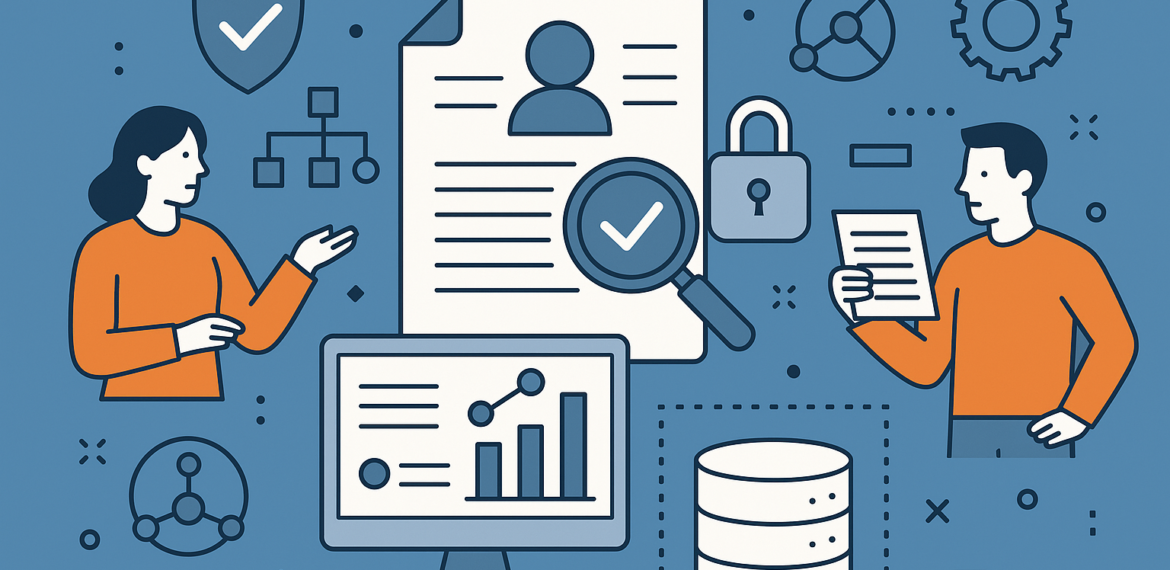
Building Trust with Data: Why Data Governance Is a Business Imperative
Building Trust with Data: Why Data Governance Is a Business Imperative
Data is the new oil, but without governance, it quickly turns into digital sludge. Companies are investing heavily in analytics and AI, yet many fail to unlock the full value of their data because it’s unstructured, unsecured, or untrusted. That’s where data governance comes in – not as a barrier, but as an enabler of trustworthy, high-impact insights.
At Datahub Analytics, we help organizations across sectors implement structured data governance frameworks that improve data quality, ensure compliance, and accelerate digital transformation.
The Growing Data Challenge
Most businesses today face a common challenge: too much data from too many sources with too little control. Data lakes quickly become data swamps without defined processes. Inconsistent naming conventions, lack of metadata, unclear ownership, and poor quality control all contribute to:
-
Conflicting reports and KPIs
-
Slower decision-making
-
Higher risk of data breaches
-
Failure to comply with privacy regulations
This challenge becomes even more critical as organizations expand across regions or scale operations in the cloud.
What Is Data Governance?
Data governance is a formal set of policies, processes, roles, and technologies that ensure data is:
-
Accurate
-
Secure
-
Available
-
Compliant
-
Consistently defined and well-documented
It focuses on managing the people, processes, and data policies required to ensure data remains trustworthy and usable across the enterprise.
Core Components of Data Governance
Data Ownership and Stewardship
Designate data owners for accountability and data stewards for operational oversight. This ensures every data domain has responsible parties managing its quality and integrity.
Data Quality Management
Establish rules to assess and improve data accuracy, completeness, consistency, and timeliness. This includes automated profiling, validation, and enrichment.
Metadata Management
Track the lineage, definition, and usage of data assets to build transparency. Metadata catalogs help teams discover, understand, and govern their data efficiently.
Access Control and Data Security
Implement role-based access controls to restrict sensitive data to authorized users. Include data masking and encryption policies to safeguard personally identifiable information (PII).
Compliance and Risk Management
Ensure adherence to local and international data privacy laws like GDPR, HIPAA, and regional frameworks. Governance helps avoid non-compliance risks by enforcing policy and audit trails.
Business Benefits of Strong Data Governance
Data governance isn’t just an IT function. It delivers measurable business value when done right.
-
Faster decision-making
-
Improved trust in dashboards and reports
-
Lower compliance risk
-
Streamlined operations
-
Better data readiness for AI and machine learning
Common Misconceptions
It’s only about compliance
While compliance is important, governance also supports business agility, data monetization, and innovation.
It’s a one-time project
Effective governance is a continuous process, not a single implementation. Policies and stewardship must evolve with the business.
It slows down analytics
On the contrary, good governance enables faster insights by providing clean, accessible, and reliable data to users.
How Datahub Analytics Delivers Governance Excellence
At Datahub Analytics, we design and implement governance programs that align with your strategic goals.
Framework Design
We define governance models that suit your organization – centralized, decentralized, or hybrid.
Policy and Standards Development
We create clear, enforceable policies for data classification, access, retention, and usage.
Stewardship Programs
We build internal capability through stewardship enablement and data governance councils.
Tool Integration
We implement data governance platforms that support cataloging, quality checks, lineage tracking, and access control.
Ongoing Monitoring
We offer managed services to monitor compliance, measure data health, and drive continuous improvement.
Ready to Build Trust Through Data?
Strong governance is not a luxury – it’s a business necessity. Whether you’re starting your data governance journey or scaling an existing program, Datahub Analytics can help you take the next step with confidence.
Let’s start with a free data governance maturity assessment.
Contact us today to schedule a discovery call.
